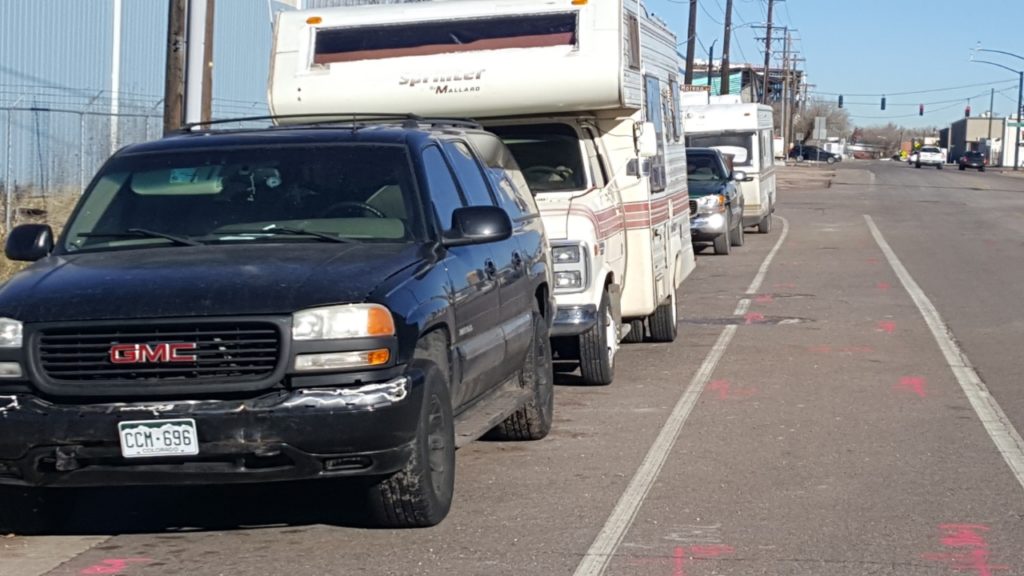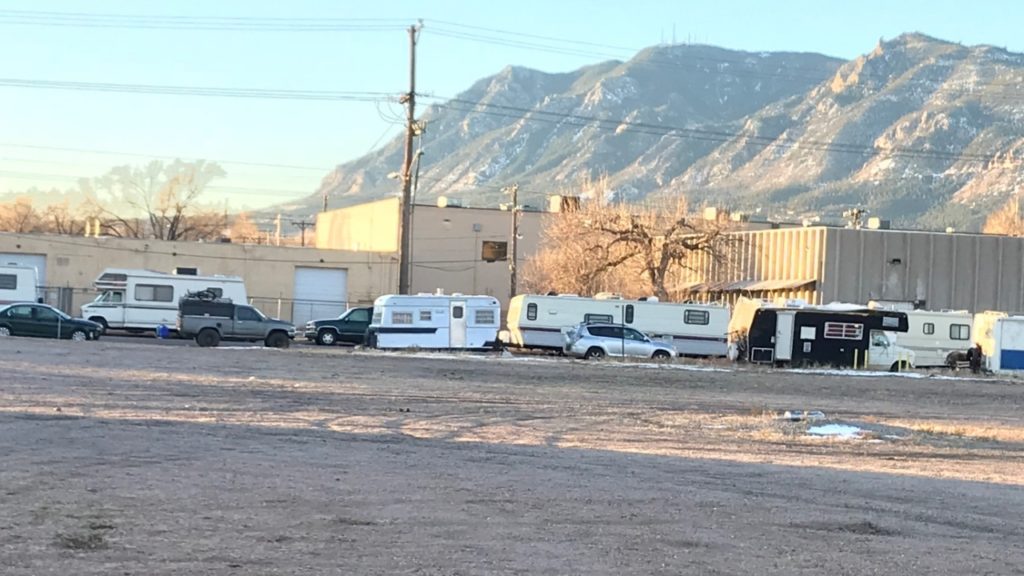This is just the first of two required votes on the change in a Colorado Springs ordinance which supporters say will help improve traffic and protect our waterways from illegal dumping of wastewater.
According to Colorado Springs Police, officers have received several recent complaints about recreational vehicles parked not only on residential streets, but along larger streets, in commercial areas and even in designated park & ride locations. These can include camping trailers, fifth wheel trailers, motor homes, travel trailers and truck campers.

The current city ordinance specifically contains fines for the extended parking of recreational vehicles “on a public right of way in a residential area for a period of time greater than that necessary for the expeditious loading and unloading of passengers or property.”
The proposed change would add “on a street or highway, alley, public roadway, or other public right of way” while eliminating “in a residential area” to allow the city to take action against offenders parked practically anywhere, except private property, for an extended period of time.
10.25.101: AUTHORITY TO IMPOUND VEHICLES:
Any recreational vehicle parked on a street or highway, alley, public roadway, or other public right of way for a period of time greater than that necessary for the expeditious loading and unloading of passengers or property.
Citations for illegal parking violations are: $75 for the first offense, $100 for the second, $125 for the third and the fourth offense can be assessed by a court, but cannot exceed $500. Any vehicles left in place 72 hours after a citation is issued can be impounded. Jail is not an option for violators of the ordinance.

In Tuesday’s vote, councilmembers Yolanda Avila, Jill Gaebler and David Geislinger were the dissenting votes, while Bennett and Murray were absent.
“I am looking at the fact that this is a lot of effluent being dumped in there, and you’re not going to get around this by not telling them to move,” said Councilman Andy Pico.
But, evident in the vote, council members were split on the ordinance. Some called it the latest effort to kick out the less fortunate.
“We’re just going to have this continued whack-a-mole issue where certain populations are going to pop up. They’re going to be addressed, because the problem is there. They’re going to move to somewhere else,” Geislinger said. “We’re going to try to strike it down there. It’s a system that has not worked. I don’t see why it’s going to work here.”
They’re calling for alternative methods to help these people, as the city continues its work to address homelessness.
There is an ordinance in place, as of July, that prohibits camping within 100 feet of a waterway within city limits. It was approved based on the argument that human camping close to waterways is a direct contributor to increased bacteria in the water, therefore posing a public safety and health risk to the community.
Civil rights groups have voiced their opposition to that ordinance, claiming it unfairly targets the homeless.
The first vote on the matter coincided with the beginning of a cleanup at the “Quarry” homeless camp on the southern side of the city, near Wahsatch and Fountain Boulevard.
Today is the deadline for anyone there to clear out. Construction equipment is being used to clear out tents, personal belongings and trash left behind. An estimated 145 tents were still on site when crews arrived.
Last week, there was a large outreach to more than 100 people who were living in the camp to inform them of various services to help them find shelter, counseling, health care and mental health assistance and help with substance abuse.
One of the biggest points made to people in the area is the additional 370 low barrier shelter beds now available in the community. The idea is to help people who have substance abuse problems get out of the cold and unsafe environments.
The city is still working to address the lack of affordable housing in the city, which is a contributing factor to homelessness.
RELATED: Crews begin cleanup of large ‘Quarry’ homeless camp

